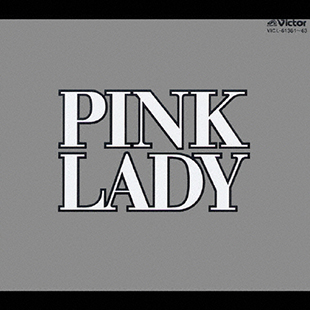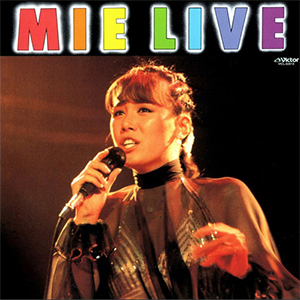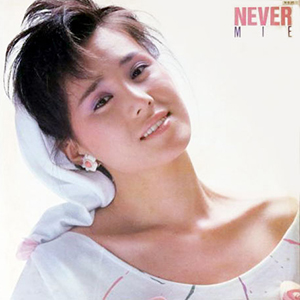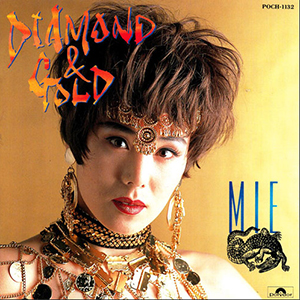
Pink Lady are a Japanese female pop music duo of the late 1970s and early 1980s, featuring Mie and Keiko Masuda. In Japan, they are remembered for a run of pop-chart hits from roughly 1976 to 1979, but in the United States, they are best known for their short-lived 1980 NBC TV variety show Pink Lady and Jeff, later released on DVD under the same title.
Mitsuyo Nemoto is a Japanese singer and actress, better known by her stage name Mie. She is a member of the popular 1970s idol group Pink Lady, known in the United States for their self-titled TV program. Mie is represented by her own management firm MHO Artist Co., Ltd.
Keiko Masuda is a Japanese pop singer and actress. She is better known by her nickname Kei, and is one half of Pink Lady, the top idol group in Japan in the 1970s. In the United States, they are known for their self-titled TV program. Masuda is represented by her own management firm Kei-Office.

The Dollar Album is the third and final studio album by pop vocal duo Dollar, released on 22 October 1982 by WEA Records. The album featured five Top 40 hit singles, including their biggest "Mirror Mirror".

"Wanted (Shimei Tehai)" (ウォンテッド (指名手配), Uonteddo (Shimei Tehai), lit. "Wanted (Fugitive Warrant)") is the fifth single released by Pink Lady on September 5, 1977. The single topped the Japan charts at number one, having sold 1,650,000 copies, and spent twelve weeks at the top.

"UFO" is the sixth single by Japanese duo Pink Lady, released on December 5, 1977 on Victor Entertainment.

"Southpaw" is Pink Lady's seventh single release, released on March 25, 1978. This became their sixth number-one hit on the Oricon Chart in Japan. The single sold 1,800,000 copies, and spent nine weeks at number one on the chart.

"Pink Typhoon (In the Navy)" is Pink Lady's twelfth single, released in May 1979. It peaked at number six on the Oricon charts and number five on the Japanese Music Labo chart. It was the duo's first single to not be written by Shunichi Tokura and Yū Aku.

"Last Pretender" is Pink Lady's 21st single, released on January 21, 1981. The single failed to be a hit, peaking at 85 in the Oricon charts. It was never promoted on television, nor was it ever performed live by the duo.

Pink Lady is a three-record greatest hits album by Japanese duo Pink Lady. The album was released on March 21 1981, ten days before their farewell concert. It contains the duo's singles and B-sides from 1976 to 1981, as well as previously unreleased tracks. The original LP release featured a silver embossed sleeve and exclusive photos of the duo.
Pink Lady no Katsudō Daishashin is a 1978 Japanese anthology film directed by Tsugunobu Kotani and starring the J-pop duo Pink Lady.

Suspense ~Pink Lady Again~ is the sixth studio album by Japanese idol duo Pink Lady, released through VAP on June 21, 1984. It was the duo's reunion album after having disbanded in 1981. Following the concert tour to promote the album, Mie and Keiko Masuda once again went their separate ways to focus on their solo careers until their second reformation in 1989.

America! America! America! is the fourth live album by Japanese idol duo Pink Lady. Recorded live at the Tropicana in Las Vegas, Nevada on April 21-22, 1978 during the duo's first American tour, the album was released on June 25, 1978. The concert was also broadcast in Japan as Pink Lady in Las Vegas.

Sayonara Pink Lady at Kohrakuen Stadium is the seventh and final live album by Japanese idol duo Pink Lady, released on December 5, 1981. Recorded live at Korakuen Stadium in Tokyo on March 31, 1981, the album featured the duo's last live performance before their disbandment that year.

MIE Live is a live album Japanese singer MIE. Recorded live at Shibuya Public Hall on October 3, 1981, the album was released on February 21, 1982. MIE Live features cover songs and a medley of Pink Lady hit singles and B-sides. The album was reissued on October 24, 2007 as MIE Live +2, with two bonus tracks.

Call Girl "from MIE to you" is the second studio album by Japanese singer MIE. The album was released on October 5, 1982 to coincide with the film Call Girl. It was also her last solo album under Victor Entertainment. The album was reissued on October 24, 2007 as Call Girl "from MIE to you" +2, with two bonus tracks.

NEVER is the third studio album by Japanese singer MIE. The album was released through CBS Sony on October 5, 1982. The title track, a Japanese-language cover of the Moving Pictures song from the Footloose soundtrack, peaked at No. 4 in Oricon's singles chart. "Never" was also used as the theme song for the TBS drama series Furyō Shōjo to Yobarete.

Diamond & Gold is the fourth studio album by Japanese singer MIE. The album was released through Polydor Records on April 25, 1992. It was reissued on October 24, 2007 as Diamond & Gold +1, with one bonus track.

me ing is the fifth studio album by Japanese singer Mie. Released on October 21, 2007 through her own label MHO, the album marked Mie's first studio release since Diamond & Gold in 1992. me ing is also the first album to feature songs written by Mie herself.

"Never" is a song written by Dean Pitchford and Michael Gore and recorded by Australian pop rock band Moving Pictures. It was featured on the chart-topping soundtrack album of the 1984 motion picture Footloose. The song is best known for a scene in the film when an angst-ridden Ren McCormack punchdances around an abandoned warehouse.

















